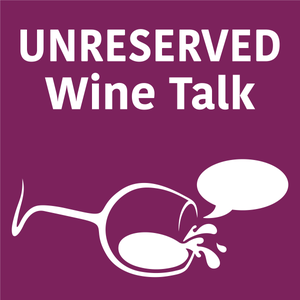
Unreserved Wine Talk
Natalie MacLean
- 41 minutes 28 seconds321: Why is Chardonnay the Winemaker's Grape + What a Family Brand Means with Chris Benziger
Why is Chardonnay the one grape that is equally made in the vineyards and the winery? What’s the difference between biodynamic and regenerative farming? What does it mean to be part of a family brand of wine?
In this episode of the Unreserved Wine Talk podcast, I'm chatting with Chris Benziger, winemaker with the Benziger family wines in Sonoma, California.
You can find the wines we discussed at https://www.nataliemaclean.com/winepicks
Giveaway
Three of you will win one of three bottles of the superb Benziger wines. This is open to Canadian residents because shipping alcohol across borders is still bound-up with prehistoric laws. To qualify, all you have to do is email me at [email protected] and let me know that you’ve posted a review of the podcast. I’ll choose three people randomly from those who contact me. Good luck!
Highlights
How does the Benziger family’s "flaming hoops" program help to ensure family members are a value add if they work at the winery?
How did the 2017 Sonoma County wildfires impact the Benziger Family Winery?
Which features can you expect from Benziger California Chardonnay, and how does it best pair with food?
What makes the Benziger Running Wild Chardonnay unique and more personal for Chris?
What is the concept of regenerative farming, and how does it relate to biodynamics?
Why is the Benziger Tribute so versatile, and what’s the story behind the name?
What does it mean to Chris to be part of a family brand of wine?
In the Museum of Chris Benziger, what three objects would be in the central display?
If Chris could share a bottle of wine with anyone outside the wine industry, who would that be?
Key Takeaways
Chris observes that most grapes or varietals are made in the vineyard. With Chardonnay, you can choose whether it’ll be a beautiful, unoaked, austere, minerally Chablis-style, or a big butter kiss, butter bomb, or anything in between. The Renziger Chardonnay is right in the middle of the teeter-totter.
Biodynamic has some baggage to it, whereas regenerative farming takes the farming part of biodynamics, which is incredible. Organic farming is simply the elimination of chemical inputs. All it does is replace all that biological capital back into the soil. So the land never goes fallow. It's constantly being fed back. Farming is resource intensive. Regenerative farming means giving back so the land is not just restored, it’s better than before the farming started.
What does it mean to be part of a family brand of wine?
Chris calls critter brands and concept brands that are developed by market research whiteboard wines. A family brand is inherently tied to a family and its name. Chris notes that his father burned the boats in the Roman tradition so to speak when he sold his business and uprooted his family and traveled 3,000 miles to start the winery. In developing the winery, all they had was each other and had to lean on each other through all the challenges from tough finances to wildfire. But they stayed together and as Chris notes, he was hosting Christmas dinner with 50 family members this year.
About Chris Benziger
Chris Benziger was still in high school when he and his family moved from White Plains, New York, to California wine country. He went on to earn a degree in marketing from the University of San Francisco, while spending summers, weekends and every spare moment working at the winery as a child laborer. He officially, he officially joined the Benziger family winery in 1993 Chris oversees the home ranch and is dedicated to the thriving biodynamic ecosystem of the estate, shepherding the Benziger flock of sheep, tending to the estate vegetables and fruit trees, and producing biodynamic preparations for his vineyards.
To learn more, visit https://www.nataliemaclean.com/321.
22 January 2025, 8:01 am - 46 minutes 37 seconds320: Pioneer California Biodynamic Winemaking + 100 Adorable Sheep with Chris Benziger
What was it like to move to biodynamic wine farming at a time when hardly anyone was doing it? What crucial role do 100 adorable sheep play at the Benziger winery? How do biodynamic preparations that might seem a bit “woo” actually benefit the vineyard? What are the benefits of biodynamic farming practices for vine health and wine quality?
In this episode of the Unreserved Wine Talk podcast, I'm chatting with Chris Benziger, winemaker with the Benziger family wines in Sonoma, California.
You can find the wines we discussed at https://www.nataliemaclean.com/winepicks
Giveaway
Three of you will win one of three bottles of the superb Benziger wines. This is open to Canadian residents because shipping alcohol across borders is still bound-up with prehistoric laws. To qualify, all you have to do is email me at [email protected] and let me know that you’ve posted a review of the podcast. I’ll choose three people randomly from those who contact me. Good luck!
Highlights
How did Chris’ grandfather transform his alcohol-importing business during Prohibition?
How did the Benziger Family Winery get started?
What does Chris love about the Benziger family property, and what fascinating history does it have?
How does the geology of the area influence Benziger wines?
What challenges did the Benziger family face during their first harvest at the new winery?
Why did the Benziger family transition to biodynamic farming practices years ahead of mainstream sustainability trends?
What crucial role do Dorper sheep and Highland cattle play at the Benziger winery?
How do biodynamic preparations that seem “woo” benefit the vineyard?
What are the benefits of biodynamic farming practices for vine health and wine quality?
Key Takeaways
The Benzigers were biodynamic pioneers in California. He quotes Gandhi: “First they ignored him, then they laughed at him, then they fought him, but then he won.” Today, in every single winery, particularly in Sonoma, Napa, Mendocino, Monterrey, and the counties that have very high prestige, every one of these wineries has some form of a sustainability program today.
The Benziger family eventually realized that sheep were the answer to their challenges. They got a big flock of a special type of sheep called a Dorper. Their little cloven hoofs push debris down, like leaves, eliminating mildew pressure, so no mildecides. They eat the grasses underneath the vine, eliminating the need for herbicides like RoundUp. And they fertilize as they go which helps with microbial growth.
Chris says that even though it sounds odd to be putting cow dung in a horn and burying it in the ground, they're making a plant probiotic. That manure attracts microorganisms in the soil, and they're just small enough that they can fit through a cow horn. This is unbelievably healthy for the plants.
In conventional farming, you water and feed the plant from the top. You're delivering everything at the surface so the roots stay at the surface. Biodynamics tells the vine, Hey, you’ve got to earn a living. We don't water or fertilize it. Now the roots do what they want to do, and go down into those different layers, find their own sources of moisture and nutrition, and that's how we get a better, more terroir-driven wine.
About Chris Benziger
Chris Benziger was still in high school when he and his family moved from White Plains, New York, to California wine country. He went on to earn a degree in marketing from the University of San Francisco, while spending summers, weekends and every spare moment working at the winery as a child laborer. He officially, he officially joined the Benziger family winery in 1993 Chris oversees the home ranch and is dedicated to the thriving biodynamic ecosystem of the estate, shepherding the Benziger flock of sheep, tending to the estate vegetables and fruit trees, and producing biodynamic preparations for his vineyards.
To learn more, visit https://www.nataliemaclean.com/320.
15 January 2025, 8:01 am - 1 hour 2 minutes319: The Biggest, Most Surprising Wine Myths with Hailey Bohlman
What’s the important difference between dry wines and the dry feeling you get when tasting certain wines? Do all or even most wines taste better when they’re older? How can you make the most of a trip to Washington wine country?
In this episode of the Unreserved Wine Talk podcast, I'm chatting with Hailey Bohlman
You can find the wines we discussed at https://www.nataliemaclean.com/winepicks
Highlights
What was Hailey’s experience with hosting her first virtual wine tasting during the pandemic?
How did Hailey get actor Kyle MacLachlan to do a virtual wine tasting with her tasting club?
Is there an overlap between Hailey’s wine career and her career in technical program management?
How does Hailey's background and passion for mathematics influence her approach to understanding and teaching about wine?
What's been the most challenging wine concept for Hailey to explain in her Wine 101 series?
What's the most mind-blowing scientific fact about winemaking that Hailey has learned?
Which wine myth does Hailey find herself debunking repeatedly?
Who were Hailey's most memorable podcast guests so far?
How can you make the most of a trip to the Washington wine regions?
Where is Hailey’s ideal place to have a glass of wine?
What does Hailey love about Domaine Philippe Vandelle Poulsard and Damsel Cellars Stillwater Creek Syrah?
Why does Hailey hate the idea of clean or fit wine?
Which wine would pair well with Hailey’s childhood favourite, microwave chicken pot pie?
Why does Hailey admire Brooke Delmas Robertson, winemaker at Delmas wines?
What are Hailey’s favourite wine gadgets?
If Hailey could share a bottle of wine with anyone outside the wine world, who would it be?
What message would Hailey want to share via a billboard in Seattle?
Key Takeaways
Hailey notes that one of the hardest wine concepts to understand is tannin, which gets confused with dry in the wine world. Tannins in red wines cause your mouth to feel dry like having a cotton ball in your mouth. When you say a dry wine, you're saying a wine with no sugar, nothing to do with the tannins.
The myth Hailey hears a lot is that all wines taste better when they're older. That's actually not true. You need to know which wines can age, but that's when you ask the experts. Shop at the small wine shops, ask the staff, ask winemakers and other experts.
Hailey advises to go for a variety of experiences and wineries when you visit any wine region. For eg. to make the most of a trip to Walla Walla, Washington, she suggests visiting wineries with vineyard tours, such as Delmas. They will teach you about how they're growing the vines. Then look for a blending class like at at North Star winery. Then try a food and wine pairing, such as the one at Pepper Bridge. Visit both small and large wineries.
About Hailey Bohlman
Hailey Bohlman, is a wine enthusiast turned wine educator and founder of Cork & Fizz with the goal of making wine more approachable for everyone. By offering guided wine tastings, along with tips, recommendations and podcast, she makes wine fun and exciting!
To learn more, visit https://www.nataliemaclean.com/318.
8 January 2025, 8:01 am - 42 minutes 15 seconds318: Flute or White Wine Glass for Champagne, Serving Tips and Styles with Chris Ruhland
Should you drink Champagne from a white wine glass or a flute? What is the ideal temperature range for serving Champagne? What might surprise you about the technical side of Champagne production?
In this episode of the Unreserved Wine Talk podcast, I'm chatting with Christopher S. Ruhland, author of Press for Champagne: A Guide to Enjoying the World’s Greatest Sparkling Wine.
You can find the wines we discussed at https://www.nataliemaclean.com/winepicks
Giveaway
Three of you are going to win a copy of his terrific book, Press for Champagne. To qualify, all you have to do is email me at [email protected] and let me know that you’ve posted a review of the podcast. I’ll choose three people randomly from those who contact me. Good luck!
Highlights
Why does Chris prefer using a white wine glass instead of the traditional elongated flute for Champagne?
What’s the problem with clear glass bottles for Champagne?
What is the ideal temperature range for serving Champagne?
Which point in history does Chris consider to be the most pivotal moment in the development of Champagne as we know it today?
What might surprise you about the technical side of Champagne production?
Which notable contributions have women made in Champagne history?
What was the significance of the Champagne riots in 1911?
How did the Champagne region recover after the World Wars, and what were the lasting effects on the industry?
How does chalky soil contribute to the hallmark qualities of Champagne?
What’s the difference between the oxidative and reductive styles of Champagne?
Why don’t we hear more about reserve wines?
What was it like to drink decades-old Champagne, and how are the bubbles affected by aging?
What is dosage, and what is its role in Champagne production?
How can you plan the best trip to make the most of the Champagne region?
Key Takeaways
I’m all for the white wine glass for Champagne, Chris says, but I don't like flutes because you can't smell the wine. They're too thin to sense the aromas from the wine. I use tulip-shaped glasses and if you go to the Champagne region, you'll see these in use all over the place.
Chris says that temperature affects the texture of the wine and the bubbles. You wouldn't want it colder than it gets in your refrigerator. The point is to start at a cold temperature.
Chris says most people are surprised at how much work it takes to make a bottle of Champagne. It is very much a human-made product in that it requires a lot of separate steps done by hand.
About Christopher S. Ruhland
Christopher S. Ruhland trained and worked as a lawyer for thirty years before becoming a mediator. He holds the Diploma in Wines & Spirits from the Wine & Spirit Education Trust and he has passed the French Wine Scholar, Bordeaux Master-Level, and Rhône Master-Level examinations given by the Wine Scholar Guild, all with Highest Honors. He is the author of the award-winning Press for Champagne: A Guide to Enjoying the World’s Greatest Sparkling Wine and gives presentations about Champagne and teaches wine courses.
To learn more, visit https://www.nataliemaclean.com/318.
1 January 2025, 8:01 am - 49 minutes 11 seconds317: Dom Perignon, Grand Cru Champagnes and Marketing Myths with Chris Ruhland
Did the Benedictine monk Dom Perignon invent Champagne? Why is Grand Cru Champagne not necessarily the best Champagne? What makes Champagne so versatile and food-friendly?
In this episode of the Unreserved Wine Talk podcast, I'm chatting with Christopher S. Ruhland, author of the award-winning Press for Champagne: A Guide to Enjoying the World’s Greatest Sparkling Wine.
You can find the wines we discussed at https://www.nataliemaclean.com/winepicks
Giveaway
Three of you are going to win a copy of his terrific book, Press for Champagne. To qualify, all you have to do is email me at [email protected] and let me know that you’ve posted a review of the podcast. I’ll choose three people randomly from those who contact me. Good luck!
Highlights
What makes Champagne so versatile and food-friendly?
What do you need to know about the main styles of Champagne?
Why is Rosé Champagne made differently from still Rosé?
What sparked Chris’ interest in Champagne in particular?
How did Chris' legal career and writing skills transfer over to writing about Champagne?
How does Press for Champagne differ from other wine books in its approach and focus?
Why does Champagne have a universal appeal, even for those who aren't wine enthusiasts?
How did Champagne become the wine of celebration?
What are some common myths about Champagne that Chris debunks in Press for Champagne?
How has the "Champagne only comes from Champagne, France" campaign impacted consumer awareness and the global sparkling wine market?
What are some of the ways popular culture has impacted certain brands of Champagne?
Did the monk Dom Perignon invent Champagne?
How has social media shaped our perception of Champagne?
What is Chris's perspective on the pricing of Champagnes and how it affects accessibility?
Key Takeaways
No, the Benedictine monk Dom Perignon did not invent champagne. Champagne wasn't even sparkling until after his death. But what is true, Chris explains, is he was a cellar master of the abbey and an important figure in Champagne wine production and in advancing its quality.
People talk about Grand Cru champagne with reverence as if it’s categorically better than champagne without that distinction. That's not true. You can find Grand Cru champagne, which is not very good. And then you have champagnes like Louis Roederer’s Cristal and Dom Perignon that are not Grand Cru champagnes.
With champagne, there is such variety and so many different styles that you really can drink it throughout an entire meal, and it can all work differently based on what you're eating.
About Christopher S. Ruhland
Christopher S. Ruhland trained and worked as a lawyer for thirty years before becoming a mediator. He holds the Diploma in Wines & Spirits from the Wine & Spirit Education Trust and he has passed the French Wine Scholar, Bordeaux Master-Level, and Rhône Master-Level examinations given by the Wine Scholar Guild, all with Highest Honors. He is the author of the award-winning Press for Champagne: A Guide to Enjoying the World’s Greatest Sparkling Wine and gives presentations about Champagne and teaches wine courses.
To learn more, visit https://www.nataliemaclean.com/317.
25 December 2024, 8:01 am - 1 hour 6 minutes316: Piemonte Sparkling Wines, Roero Nebbiolo and Visiting Alba with David Way
In northern Italy, Alba, Barolo and Barbaresco have become wine tourist destinations. How can you make the most of your visit to these regions in Piemonte? Why should you try a Nebbiolo wine from Roero? Why is there so much excitement about the sparkling wines of Piemonte now?
In this episode of the Unreserved Wine Talk podcast, I'm chatting with David Way, author of the terrific book The Wines of Piemonte.
You can find the wines we discussed at https://www.nataliemaclean.com/winepicks
Giveaway
Two of you will win a copy of his terrific new book, The Wines of Piemonte. To qualify, all you have to do is email me at [email protected] and let me know that you’ve posted a review of the podcast. I’ll choose two people randomly from those who contact me. Good luck!
Highlights
What should you know about Gaja and the Barbaresco cooperative?
Why did David have to wait outside a Barbaresco winery for an hour past his appointment without any explanation?
How does Moscato d’Asti compare to Champagne, and why is it often undervalued?
What are the differences between how Moscato d'Asti and Prosecco are produced?
What is the history of sparkling wine production in Piemonte, including the pioneering work of Carlo Gancia?
What can you expect from the red sparkling wines of Piemonte?
Why should you try a Nebbiolo from Roero and what characteristics can you anticipate?
How can you plan a fascinating wine trip to Piemonte?
Key Takeaways
David notes that Alba, Barolo and Barbaresco have beautiful landscapes, amazing wines, and incredible cuisine with lots of lovely small Michelin-starred restaurants. There are also boutique hotels that are relatively inexpensive.
There is a region called Roero, which is 20 minutes north of Alba. What people don't know about Roero, is that it's also an excellent source of Nebbiolo wines, at much lower prices.
Piemonte has both tank method and traditional method sparkling wines. Traditional method sparkling wine made in the bottle is typical of two areas outside Piemonte, Franciacorta and Trentodoc. But Piemonte is actually the pioneer of that style.
About David Way
David Way initially specialized in the wines of the Tuscan Maremma before broadening his interests to the rest of Italy and beyond. He works as Senior Researcher on the five textbooks for the WSET Level 4 Diploma in Wines. In his own name, David wrote The Wines of Piemonte . The book gives unparalleled coverage of one of Italy’s most important regions and includes 200 producer profiles. The book was honoured by the OIV at its award ceremony in Lisbon in 2024.
Bonus Interview – Jo Penn: Highlights
How can you legally protect yourself as a writer?
What can writers do to engage readers and especially book clubs?
What are some of my multiple streams of income as a writer?
About Jo Penn
Jo Penn is an award-winning New York Times and USA Today bestselling author of horror, thrillers, dark fantasy, crime, and travel memoirs, as well as short stories. She’s also an award-winning podcaster. Her latest novel is Blood Vintage, a folk horror story set in an English vineyard.
To learn more, visit https://www.nataliemaclean.com/316.
18 December 2024, 8:01 am - 1 hour 19 minutes315: Exploring Piemonte Wines Beyond Barolo and Barbaresco with David Way
Are you curious about the wines of Piemonte in northern Italy? Why are Barolo and Barbaresco often compared with Burgundy? What makes Nebbiolo unique as a grape?
In this episode of the Unreserved Wine Talk podcast, I'm chatting with David Way, author of the new book The Wines of Piemonte.
You can find the wines we discussed at https://www.nataliemaclean.com/winepicks
Giveaway
Two of you will win a copy of his terrific new book, The Wines of Piemonte. To qualify, all you have to do is email me at [email protected] and let me know that you’ve posted a review of the podcast. I’ll choose two people randomly from those who contact me. Good luck!
Highlights
What makes David's book, The Wines of Piemonte, different from other Italian wine books?
How does Piemonte compare geographically to other well-known Italian wine regions?
Why does the Piemonte region have so many wine denominations and what are the challenges this presents?
What approach does David recommend for understanding Piemonte denominations?
Why is Piemonte often compared to Burgundy?
What are the unique qualities of Piemonte’s signature grape, Nebbiolo?
How has Nebbiolo evolved from the “tannic monster” of the past?
How do Nebbiolo and Barbera grapes compare?
Should you decant your wines?
Key Takeaways
Much has been written about the Barolo and Barbaresco appellations of Piemonte but very little about the rest of the region.
Barolo and Barbaresco have many small plots owned by many small growers so in that sense, it's very much like Burgundy. It’s also similar in that tiny differences of altitude, soil type, vineyard orientation, and wind direction make big differences in the final wine.
David believes that the magic of Nebbiolo is its extraordinary aromatic complexity and amazing structure. It has structure, but not too overt in that it still has a silky and textured and it can age for decades.
About David Way
David Way initially specialized in the wines of the Tuscan Maremma before broadening his interests to the rest of Italy and beyond. He works as Senior Researcher on the five textbooks for the WSET Level 4 Diploma in Wines. In his own name, David wrote The Wines of Piemonte (Classic Wine Library, 2023). The book gives unparalleled coverage of one of Italy’s most important regions and includes 200 producer profiles. The book was honoured by the OIV at its award ceremony in Lisbon in 2024.
Bonus Interview – Jo Penn: Highlights
What are the challenges of writing memoir compared to more journalistic writing?
How does it feel to be a supertaster?
How does the concept of "terroir" in wine compare to the development of a writer's unique voice?
About Jo Penn
Jo Penn is an award-winning New York Times and USA Today bestselling author of horror, thrillers, dark fantasy, crime, and travel memoirs, as well as short stories. She’s also an award-winning podcaster. She has a Master’s in Theology from the University of Oxford. Her latest novel is Blood Vintage, a folk horror story set in an English vineyard.
To learn more, visit https://www.nataliemaclean.com/315.
11 December 2024, 8:01 am - 45 minutes 8 seconds314: Why We Struggle to Describe Wine Yet Keep Trying with Hugh Johnson
Why is it so difficult to describe wine? How did England pave the way for Champagne as we know it today? What do winemaking and gardening share beyond being plant-based?
In this episode of the Unreserved Wine Talk podcast, I'm chatting with Hugh Johnson.
You can find the wines we discussed at https://www.nataliemaclean.com/winepicks
Giveaway
Two of you will win a copy of his marvellous memoir, The Life and Wines of Hugh Johnson. To qualify, all you have to do is email me at [email protected] and let me know that you’ve posted a review of the podcast. I’ll choose two people randomly from those who contact me. Good luck!
Highlights
What’s behind Hugh’s decades-long love for Bordeaux?
How did Hugh’s first book about trees come about?
How has writing about wine and about horticulture influenced each other?
Are there commonalities between gardening and winemaking?
Where was Hugh’s favourite place to enjoy wine?
What was it like tasting wine with former Dom Pérignon chef de cave Richard Geoffroy?
How did England pave the way for Champagne as we know it today?
What did Hugh’s friendships with Elizabeth David and André Simon teach him about food and wine?
What was it like tasting a wine that was made hundreds of years ago?
What’s the difference between wines of "curiosity" versus "conviction"?
Where does Hugh think the future of wine communication will go?
What does Hugh hope his legacy to the wine world will be?
Key Takeaways
As Hugh observes, the essence of writing is comparing one experience to another. He tries to exploit the wonderful vocabulary of the English language which unites the brilliance of the Latin languages and the German school. However, there are no words that actually match the taste of wine.
As Hugh explains that to keep the cork in a champagne bottle they used to tie it with string. The wine fermented in the bottle and the bottle exploded because the French didn't have bottles that would take the pressure. But England did and it's an interesting story. Under King James the First, at the beginning of the 17th century, they had to build a big fleet for the Navy to protect the country. The King decreed that all the good oak trees were for the ships only. So if you're going to make glass, you need a furnace at a very high temperature. So they had to use coal instead of wood. Coal mainly comes from the north of England, in Newcastle. These glass furnaces got really hot, and the glass got darker, but it also got stronger. And they found that it could take the pressure of bubbly wine.
Winemaking and gardening both apply human skills, intelligence, and taste to natural objects. He observes who needs 450 varieties of roses. They're not needed, but they interest people, and people enjoy them.
About Hugh Johnson
Hugh Johnson is the world’s best-known wine writer, having sold more than 20 million books worldwide over a 60-year career. He began acquiring his wine knowledge as a member of the Wine and Food Society at Cambridge University before becoming a feature writer for Vogue and House & Garden magazines.
To learn more, visit https://www.nataliemaclean.com/314.
4 December 2024, 8:01 am - 41 minutes 33 seconds313: The legendary Hugh Johnson, author of The World Atlas of Wine, on how you can improve your wine-tasting skill and pleasure
Are you curious what it would be like to ask for wine advice from legendary Hugh Johnson, author of The World Atlas of Wine, among many other books? What would he advise you on how you can improve your wine-tasting skill and pleasure? Why was Hugh initially against wine scoring and how has his perspective changed over the years? What makes a wine great in Hugh’s opinion? Why does Hugh now prefer English sparkling wines over his long-time favourite Pol Roger Champagne?
In this episode of the Unreserved Wine Talk podcast, I'm chatting with Hugh Johnson.
You can find the wines we discussed at https://www.nataliemaclean.com/winepicks
Giveaway
Two of you will win a copy of his marvellous memoir, The Life and Wines of Hugh Johnson. To qualify, all you have to do is email me at [email protected] and let me know that you’ve posted a review of the podcast. I’ll choose two people randomly from those who contact me. Good luck!
Highlights
What is it about Chablis that makes it Hugh’s favourite white wine?
How have English sparkling wines changed over the years and why does Hugh now turn to them more than his long-time favourite Champagne Pol Roger?
Why is it important to taste high-quality wines at the beginning of your wine journey, if you can afford it?
How can you improve your wine-tasting skill and pleasure?
How did Hugh’s first writing job at Vogue magazine lead to his extensive wine writing career?
How did The World Atlas of Wine revolutionize the way wine and wineries were understood?
What have been the most surprising changes Hugh has seen in the wine world over the years?
What was it like for Hugh to buy his first case of First Growth Bordeaux?
How does Hugh remember his first encounter with Robert Parker's wine scoring system and his initial skepticism?
Key Takeaways
What advice does Hugh have on improving your wine-tasting skill and pleasure? The first thing you have to do is concentrate on the wine. Look at the color, sniff it, take a sip, but then when you take a sip, think about it. Keep it in your mouth for a moment or two, chew on it. Swirl it around until it registers, and you experience the wine more fully.
Hugh asks how can you score wine any more than you can score Mozart or your friends? He didn’t believe in an objective scale or giving the wrong impression that one wine is better than another. Over the years, he’s accepted scoring within a narrow range say for wine competition categories where all the wines are from the same region and grape.
Hugh says he’s had an account with the house of Pol Roger for about 60 years but more recently, he’s been switching to English sparkling wine. He observes they have a brilliant wine industry in England. Climate change is part of it, but they’re also now using champagne grapes to make the wine.
About Hugh Johnson
Hugh Johnson is the world’s best-known wine writer, having sold more than 20 million books worldwide over a 60-year career. He began acquiring his wine knowledge as a member of the Wine and Food Society at Cambridge University before becoming a feature writer for Vogue and House & Garden magazines.
To learn more, visit https://www.nataliemaclean.com/313.
27 November 2024, 8:00 am - 41 minutes 31 seconds312: How Can You Improve Your Sense of Smell with Wine? Johannes Frasnelli Has Great Tips
How can you train your sense of smell? Why does smelling require much more focus than our other senses? What is retronasal olfaction and why is it so important when it comes to enjoying wine?
In this episode of the Unreserved Wine Talk podcast, I'm chatting with author Johannes Frasnelli.
You can find the wines we discussed at https://www.nataliemaclean.com/winepicks
Highlights
Do wine aroma kits help to improve our ability to smell and taste wine?
What positive changes occur in the brains of master sommeliers?
How does our emotional state influence our ability to perceive scents?
Do humans have pheromones, and how can our body odours influence each other?
Is there a difference in how our brains process wine aromas compared to synthetic scents?
How is olfactory marketing used by certain brands to improve their customer experience?
What is the role of retronasal olfaction in wine tasting and flavour perception?
What is synesthesia, and how does it relate to perception in wine tasting?
What are the main factors that influence the recovery of the sense of smell?
Which areas of olfactory research are Johannes most excited about?
Key Takeaways
Johannes explains that master sommeliers train their brain’s sense of smell just as many people train physically when they go to the gym. The key is to make it challenging. What we can train most about smell is its connection with language. It’s important to talk about the smells we detect with each other. It's not enough just to have odors go by. You have to actively try to identify them.
Smelling is difficult for humans Johannes observes. We can oversee a visual scenery very quickly. With smelling, we don't have these abilities. When we smell something in our environment, it is much more work for us to identify the particular odors, and we have to concentrate. We don't do that a lot. So you need to have the mental spare time to focus.
Johannes says that retronasal olfaction is not only when you swallow wine, it's also when you have it in your mouth. When sommeliers swish the wine around their mouths, the molecules heat up and get pushed up into the nasal cavity, which is also part of the retro nasal component. You can test this by just pinching your nose. You won't smell because it's blocked in the front, the air cannot enter. Then as soon as you release the nose, then you will have this additional smell dimension. Retronasal olfaction is really the key player when it comes to smell and flavor perception.
About Johannes Frasnelli
After being trained as a physician at University of Vienna, Austria, Johannes Frasnelli was a visiting scientist in research labs in Dresden, Germany, in Philadelphia, PA, in Stockholm, Sweden, and in Bozen, Italy. He is currently a professor for human anatomy at the University of Quebec at Trois-Rivières (UQTR), while also being a regular researcher at the Research Center of the Sacré-Coeur Hospital of Montreal. His research focuses on the physiology, the psychology and the pathology of the sense of smell.
To learn more, visit https://www.nataliemaclean.com/312.
20 November 2024, 8:01 am - 44 minutes 17 seconds311: Smell, the Cinderella Sense, Goes Full Princess on Wine with Johannes Frasnelli
Why is smell, often called the Cinderella sense, so underrated in our culture, especially when many luxury products, such as wine, spirits and perfume, are based on it? Even though dogs have more than twice the number of scent receptors than humans, why are we better at detecting wine aromas? What might surprise you about how we perceive the senses of taste and smell? Why is the sense of smell so evocative compared to other senses?
In this episode of the Unreserved Wine Talk podcast, I'm chatting with author Johannes Frasnelli.
You can find the wines we discussed at https://www.nataliemaclean.com/winepicks
Highlights
What were some of the most memorable smells from Johannes’ childhood?
How did Johannes first become fascinated with the subject of smell and the science behind it?
What were the most surprising things Johannes discovered about our sense of smell in his research so far?
What might surprise you about how we perceive the senses of taste and smell?
Why is the sense of smell often undervalued compared to other senses like sight?
How does the process of smell work?
What’s the connection between the trigeminal nerve and wine tasting?
What’s the difference between taste and flavor, and how do they work together?
How does our sense of smell compare to animals like dogs?
Do men and women perceive smells differently?
Why is the sense of smell so evocative compared to other senses?
How can expectations and language influence our smell perception?
Key Takeaways
Johannes explains that there’s a myth about us not having as good a sense of smell as other animals, but this has its roots in the 19th century, when Darwinian ideas emerged. Suddenly, we were just another animal and not this creation of God. So different players, including the Catholic Church. It’s these senses that are very developed for us as humans such as sight versus smell.
In the context of wine, Johannes says, humans are particularly sensitive, and this may be an evolutionary advantage. Our ancestors became much more sensitive to these odors than carnivores that didn’t eat fruit. So while we have fewer smell receptors, we have a better performing brain to interpret and apply the information.
The regions of the brain responsible for olfactory processing belong to the limbic system, which is also responsible for other functions such as emotions, memory, learning, and reward. So when we smell something, we also stimulate our memories, emotions, desire for rewards, etc.
About Johannes Frasnelli
After being trained as a physician at University of Vienna, Austria, Johannes Frasnelli was a visiting scientist in research labs in Dresden, Germany, in Philadelphia, PA, in Stockholm, Sweden, and in Bozen, Italy. He is currently a professor for human anatomy at the University of Quebec at Trois-Rivières (UQTR), while also being a regular researcher at the Research Center of the Sacré-Coeur Hospital of Montreal. His research focuses on the physiology, the psychology and the pathology of the sense of smell.
To learn more, visit https://www.nataliemaclean.com/311.
13 November 2024, 8:01 am - More Episodes? Get the App
Your feedback is valuable to us. Should you encounter any bugs, glitches, lack of functionality or other problems, please email us on [email protected] or join Moon.FM Telegram Group where you can talk directly to the dev team who are happy to answer any queries.
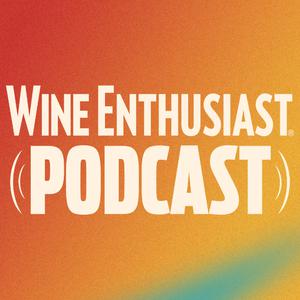 Wine Enthusiast Podcast
Wine Enthusiast Podcast
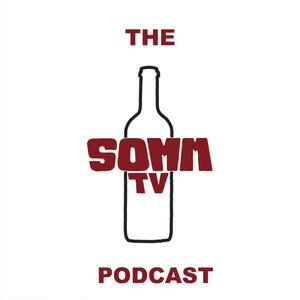 SOMM TV
SOMM TV
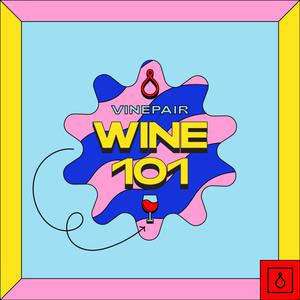 Wine 101
Wine 101
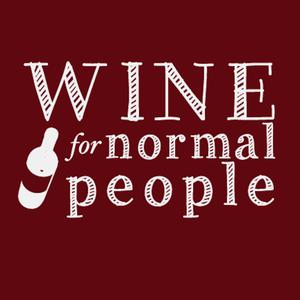 Wine for Normal People
Wine for Normal People
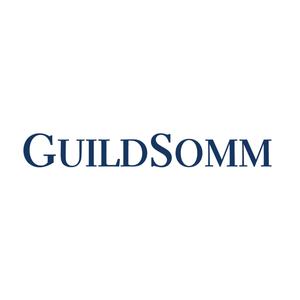 GuildSomm Podcast
GuildSomm Podcast
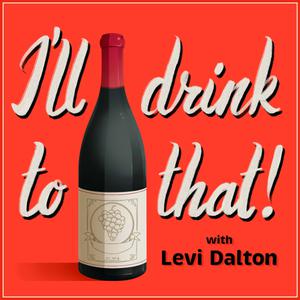 I'll Drink to That! Wine Talk
I'll Drink to That! Wine Talk